Restore our Oceans by 2030
With a 2030 target, the EU Mission "Restore our Ocean and Waters" aims to protect and restore the health of our ocean and waters through research and innovation, citizen engagement and blue investments. The Mission’s new approach will address the ocean and waters as one and play a key role in achieving climate neutrality and restoring nature.
Cross-cutting enabling actions will support this objective, in particular broad public mobilisation and engagement and a digital ocean and water knowledge system, known as Digital Twin Ocean.
The Mission supports regional engagement and cooperation through area-based “lighthouses” in major sea/river basins: Atlantic-Arctic, Mediterranean Sea, Baltic-North Sea, and Danube-Black Sea. Mission lighthouses are sites to pilot, demonstrate, develop and deploy the Mission activities across EU seas and river basins.
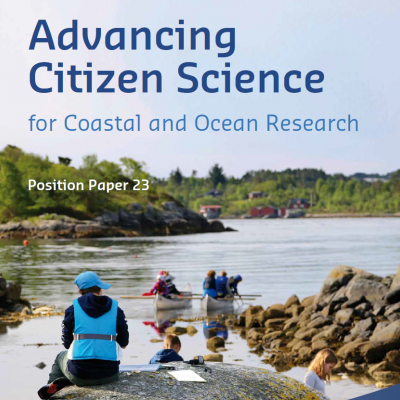
Advancing citizen science for coastal and ocean research
This position paper explores various strategies to enhance the scalability of citizen science in marine and coastal research. It highlights the role of technology—such as smartphones, apps, and low-cost DIY sensors—in simplifying data collection, thus broadening participation across diverse populations. Additionally, the paper emphasises the importance of decentralised networks and standardised data management systems to efficiently aggregate and utilize large datasets, which are crucial for scaling up citizen science initiatives.
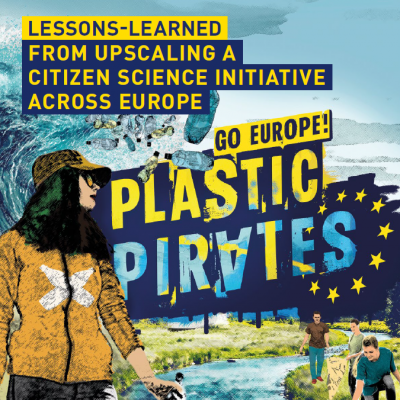
Lessons learned from upscaling a citizen science initiative across Europe
This resource from Plastic Pirates – Go Europe! provides a detailed account of lessons learned in upscaling a plastic waste pollution citizen science initiative across multiple European countries. It highlights key strategies for successful upscaling, such as combining scientific rigor with simplified protocols, securing sustained funding, and fostering a transnational spirit through local expertise and centralised coordination. The lessons learned from expanding to 13 countries, involving over 16,000 students, offer valuable insights into the scalability of citizen science initiatives at both national and international levels.
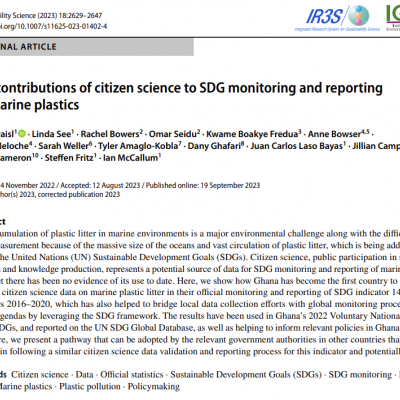
The contributions of citizen science to SDG monitoring and reporting on marine plastics
This journal article demonstrates a replicable pathway for integrating citizen science data into national and global reporting frameworks, using Ghana's beach litter monitoring as a case study. It provides a validated, scalable methodology that empowers citizen science initiatives to contribute directly to Sustainable Development Goal 14.1.1b (plastic debris density), making it a practical and impactful model for expanding citizen science in efforts to improve oceans health.
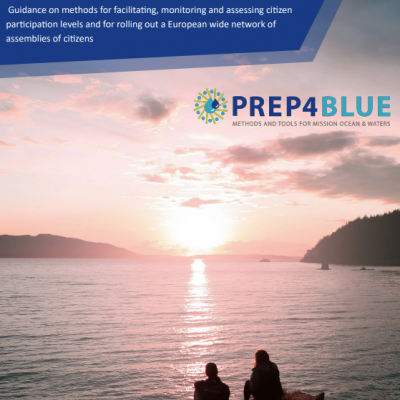
Engaging Citizens with Mission Ocean and Waters: A Toolbox of Approaches
This toolkit offers a step-by-step guide and tested engagement methods such as participatory mapping, scenario workshops, and citizens’ assemblies. By aligning citizen participation with EU Mission to Restore Our Ocean and Waters objectives and providing tools for monitoring, evaluating, and localising involvement across diverse European regions, it enables wider, more strategic, and higher-impact citizen science efforts that can be scaled both geographically and institutionally.
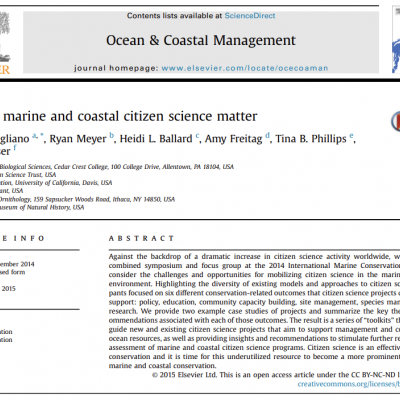
Making marine and coastal citizen science matter
This journal article is provides detailed toolkits and case studies that connect citizen engagement to concrete marine and coastal conservation outcomes like policy change, site management, and species monitoring. By addressing challenges unique to marine contexts and outlining strategies for data quality, community trust, and collaboration with decision-makers, it provides a practical roadmap for designing scalable, impactful marine citizen science initiatives.
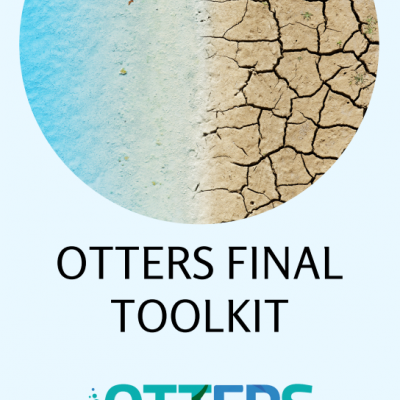
OTTERS Project Citizen Science Toolkit
This toolkit from the OTTERS project is a practical resource designed to scale citizen science for marine and freshwater stewardship under the EU Mission to Restore Our Ocean and Waters. By offering co-creation methods, stakeholder-specific engagement materials, and regionally adaptable campaign toolkits, it supports the development of inclusive, community-led initiatives that can be replicated and expanded to address water pollution, quality, and conservation across diverse geographies and contexts.